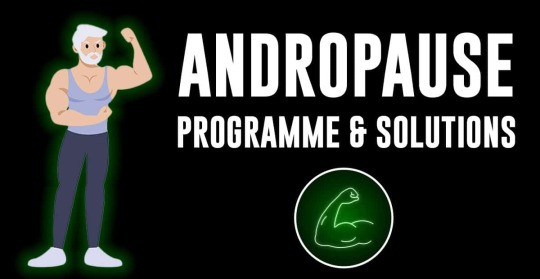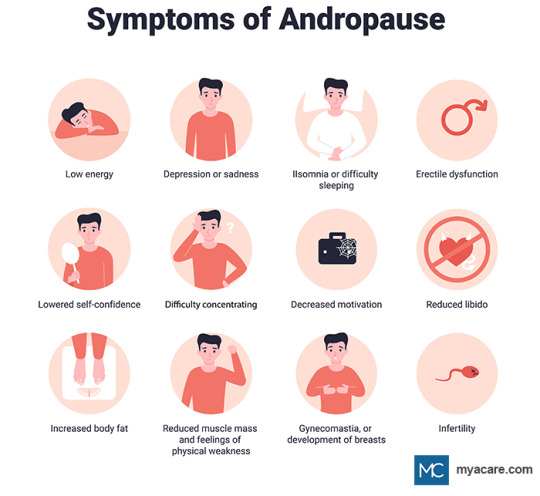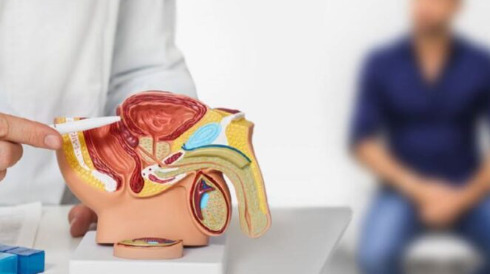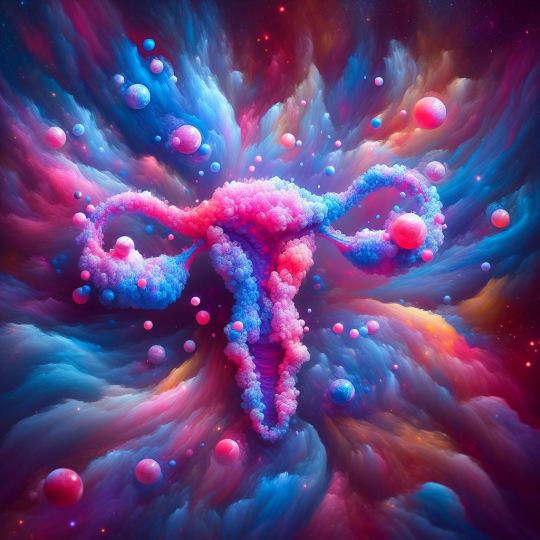#andropause age
Text
Andropause : lutter contre le déclin de la testostérone ( + programme entraînement )
NOUVEAU PROGRAMME 👉 Andropause : lutter contre le déclin de la testostérone ( + programme entraînement )
Si vous avez plus de 30 ans, ne perdez plus de temps, l’andropause ou le déficit androgénique lié à l’âge est un vrai problème. Vous voulez savoir comment mieux vivre votre andropause, vous entrainer et ne pas sombrer dans l’isolement et la déprime ? J’ai fait des recherches pour vous apporter les connaissances actuelles afin que vous puisiez retrouver ou conserver la pleine forme malgré l’âge…

View On WordPress
#andropause#andropause age#andropause chez l&039;homme symptomes#andropause definition#andropause for men#andropause homme#andropause in hindi#andropause in telugu#andropause männer#andropause meaning#andropause précoce#andropause symptomes#andropause symptoms#andropause traitement#andropause treatment#conseils andropause#homme#ménopause homme#santé des hommes#symptômes andropause#traitement andropause
0 notes
Text
Healthy Aging for Men with Chinese Medicine
Healthy Aging for Men with Chinese Medicine
June is Men’s Health month, a time to highlight the need for more awareness of men’s health issues. Given that statistically men usually have shorter life expectancies and poorer overall health when compared to women, this is not just a courtesy tip. The reasons for these poorer health outcomes may be a combination of genetic and social influences. Genetically, men are more prone to heart disease…

View On WordPress
0 notes
Note
How does Dr Fizz not empty with wings? I think they make lids for cans so that may be a kinda cool solution. It could be customized, too, but if you've got an idea already don't let me step in your cornflakes.
thanks for asking!! i have an entire theory :D
So, apparently, [winged] Dr Fizz could fly normally until the events of Box's Exit Interview. There he blew his top after Lifering annoyed him by repetitive questions given to Box by the viewers, which caused him to lose a fair amount of his soda, which functions as his hydroskeleton and keeps him alive. Ever since, his top looks like this (image below this text) and he's more careful of his own movement, because, one wrong move and he's no longer alive.

However, you gave me a good idea. I think that he wears a can lid while he's sleeping or doing any other activity that requires laying down.
There's no need for him to wear a lid while he's flying. His wings are 2-3 times bigger than his body and his body is not aerodynamically shaped. That prevents him from flying horizontally. If he flew horizontally, like most birds, he would probably fall down and, nowadays, spill and die. Instead, he flies vertically, like most pigeons when they're flying on short distances and massive hummingbirds. Let's use this wood pigeon as an example. I see a lot of pigeons in my city, and they mostly fly like this on short distances.


Also, i have a headcanon that Dr Fizz is around 38-40 years old. All living beings tend to lose energy as they get older. Birds and winged Dr Fizz are not exceptions. Apparently, according to most object shows, sentient objects age, function and have a civilization just like humans. Dr Fizz is, according to my headcanon, middle aged and close to andropause, which usually starts in late 40s. And also, there's no use for him to spread his wings a lot, because they can hit other sentient objects and cause a lot of issues.
p.s. i'm a (winged??) dr fizz fictionkin, i think most of these might be kinmems :P
context
@beepject @thegummysharkbagsys obligatory dr fizz enjoyer tag ^^
#inanimate insanity#osc#inanimateinsanity#inanimate insanity invitational#ii#object show community#object shows#object show#oscblr#osc community#object show au#inanimate insanity au#ii au#biology#aerodynamics#um actually 🤓#🤓#🤓🤓🤓#i got an ask!#theory#fan theory#fandom theory#object show theory
12 notes
·
View notes
Text
Okay but what if...
listen, this might sound crazy, but... I have a theory.
Most people know about ciswomen having menopause, but did you guys know that men go through menopause too? But as cismen. It's called andropause.

It seems to me it might be kinda similar to a midlife crisis, but biologically. To me, Kazui seems to show several of these symptoms.
Let's go over some of them:
Depression (some of these also tie into lowered self-confidence):



Decreased motivation:


Feeling of physical weakness:

(there's other mentions of him calling himself an old man)
Furthermore, his age also fits well.

It's kinda suspicious he's 39 - one year off from 40

9 notes
·
View notes
Text
Managing Male Menopause: Tips For Coping With Symptoms And Seeking Treatment
Are you a man experiencing unexplained mood swings, fatigue, or changes in libido? You might be facing male menopause, a condition often overlooked but just as significant as its female counterpart. In this blog post, we delve into understanding the symptoms of male menopause and provide valuable tips on how to cope with the physical and emotional changes it brings. Let's uncover the ways to manage male menopause effectively and break the stigma surrounding it! How To Treat Male Menopause
Understanding the Symptoms of Male Menopause
Male menopause, also known as andropause, is a natural hormonal shift that typically occurs in men as they age. One of the primary hormones affected during this time is testosterone, leading to various physical and emotional symptoms. Symptoms may include fatigue, reduced muscle mass, weight gain around the abdomen, and decreased libido. On an emotional level, men may experience mood swings, irritability, depression, or anxiety.
Recognizing these symptoms early on is essential to seeking appropriate treatment and support. While male menopause can be challenging to navigate due to its subtlety compared to female menopause, understanding the signs can help manage its impact on daily life effectively. By proactively acknowledging and addressing these symptoms, individuals can improve their quality of life during this transitional phase.
Coping with Physical and Emotional Changes
Coping with physical and emotional changes during male menopause can be a challenging experience for many. Recognizing and acknowledging the symptoms, including fatigue, irritability, weight gain, and decreased libido, is essential.
Regular exercise can help alleviate some physical symptoms by boosting energy levels and improving overall well-being. Maintaining a healthy diet rich in fruits, vegetables, lean proteins, and whole grains can also support hormone balance.
Emotionally, it's important to prioritize self-care practices such as mindfulness meditation or therapy to navigate feelings of anxiety or depression. Seeking support from loved ones or joining a men's support group can also provide valuable outlets for sharing experiences and coping strategies. Remember that it's okay to seek professional help if needed.
Communication and Support in Dealing With Male Menopause
Communication and support play a crucial role in dealing with male menopause. It's essential for individuals experiencing symptoms to open up to their partners, friends, or healthcare providers about what they're going through. Expressing feelings and concerns can help alleviate the emotional burden often accompanying this stage of life.
Having open and honest conversations can also lead to better understanding and empathy from those around you. Support from loved ones can make a significant difference in coping with the physical and emotional changes that come with male menopause. It creates a sense of validation and reassurance that you're not alone in facing these challenges.
Seeking professional help is another important aspect of managing male menopause symptoms effectively. Therapists or support groups specialized in dealing with men's health issues can provide valuable guidance and strategies for navigating this transitional phase. Remember, it's okay to ask for help when needed!
Breaking the Stigma Surrounding Male Menopause
Male menopause, also known as andropause, is a natural phase in a man's life characterized by hormonal changes that can lead to various physical and emotional symptoms. Unfortunately, there is still stigma and misunderstanding surrounding this condition, often leading to men feeling embarrassed or ashamed to seek help.
It's essential to recognize that male menopause is a natural phenomenon that affects many men as they age. By shedding light on this topic and increasing awareness, we can help normalize discussions around male menopause and encourage open conversations about its symptoms and treatment options.
Dispelling myths and misconceptions about male menopause is crucial in breaking down barriers to seeking support. Education plays a vital role in empowering both men experiencing these symptoms and their loved ones to positively address the challenges associated with this stage of life.
By fostering an environment of understanding and acceptance, we can create a supportive community where individuals feel comfortable discussing their experiences with male menopause without fear of judgment or ridicule. Let's work together to break the stigma surrounding male menopause and promote empathy, compassion, and informed decision-making for those navigating this transitional period.
Lifestyle Changes to Help Manage Symptoms
Making positive lifestyle changes can significantly impact the symptoms of male menopause. Regular exercise, a balanced diet rich in fruits and vegetables, and adequate sleep are essential for overall well-being. Maintaining a healthy weight and reducing stress through relaxation techniques like yoga or meditation can help alleviate symptoms.
Moreover, limiting alcohol consumption and quitting smoking can have a positive effect on hormonal balance. Engaging in activities you enjoy, spending time with loved ones, and seeking professional help when needed are all crucial steps towards managing male menopause effectively.
By taking control of your health through these lifestyle adjustments, you can improve your quality of life and navigate the challenges associated with male menopause more successfully. Remember that seeking support from healthcare providers, therapists, or support groups is always an option if you find yourself struggling to cope with the physical and emotional changes that come with this stage of life. Embracing these lifestyle changes empowers you to take charge of your well-being and live a fulfilling life despite the challenges posed by male menopause.

0 notes
Text
Hormone Therapy for Men - Reclaiming Vitality and Well-Being
At The Enhancement of Life Center, we understand the significant impact that hormonal imbalances can have on men's health and quality of life. As men age, they may experience a decline in testosterone levels, leading to a condition known as andropause. This can result in a range of symptoms, including decreased energy, reduced libido, muscle loss, and mood changes.

Our team of experienced healthcare professionals specializes in providing personalized hormone therapy for men, utilizing natural bio-identical hormones to restore hormonal balance and alleviate symptoms. We recognize that every man's hormonal needs are unique, which is why we develop individualized treatment plans tailored to each patient's specific requirements.
One of the most effective methods we use for hormone therapy in men is hormone pellet therapy. This innovative treatment involves inserting small pellets under the skin, typically in the hip area, through a minor incision. These pellets gradually release small doses of bio-identical hormones over an extended period, providing consistent and optimal therapy.
The benefits of hormone therapy for men are numerous. By restoring testosterone levels to a healthy range, men can experience increased energy, improved mood, enhanced libido, and better overall well-being. Additionally, hormone therapy can help preserve muscle mass, maintain bone density, and support cognitive function.
At The Enhancement of Life Center, we prioritize patient safety and comfort. Our team of skilled professionals ensures that the pellet insertion process is quick, minimally invasive, and virtually painless. We use advanced techniques and state-of-the-art equipment to deliver the highest quality care to our patients.
If you're a man experiencing symptoms of hormonal imbalance or andropause, we encourage you to explore the benefits of hormone therapy. Our team at The Enhancement of Life Center is dedicated to helping you reclaim your vitality and enhance your quality of life through personalized hormone therapy programs.
Don't let hormonal imbalances hold you back any longer. Contact The Enhancement of Life Center today at: https://antiagingsa.com to schedule a consultation and take the first step towards optimizing your health and well-being.
0 notes
Link
As men age, they often experience a natural decline in testosterone levels, which can lead to a condition known as andropause. This phase, commonly referred to as male menopause, affects a significant number of men yet remains underdiagnosed and often misunderstood. Proper diagnosis is crucial in managing the symptoms effectively and improving the quality of life. This article delves into the importance of diagnosing andropause and the impact it has on those affected. The Importance of Diagnosis: 1. Understanding Symptoms: Andropause can present with various symptoms that resemble those of other health conditions, such as fatigue, depression, mood swings, decreased libido, and physical weakness. Without a correct diagnosis, these symptoms may be misattributed to mere aging or other health issues, delaying effective treatment. 2. Tailoring Treatment Options: Diagnosis not only confirms the presence of andropause but also helps in assessing the severity of the condition. This is essential for tailoring personalized treatment plans that can include lifestyle changes, dietary adjustments, hormone replacement therapy (HRT), or counseling. Each individual's needs can significantly vary, making personalized treatment plans based on a thorough diagnosis vital. 3. Preventing Complications: Untreated andropause can lead to severe complications over time, including osteoporosis, muscle loss, and increased cardiovascular risk. Early diagnosis allows for the implementation of preventive measures to mitigate these risks effectively. 4. Enhancing Quality of Life: By diagnosing andropause early, men can address symptoms that might otherwise negatively impact their personal and professional lives. Treatment following diagnosis can lead to improved energy levels, better emotional health, and restored libido, thus enhancing overall life quality. 5. Increasing Awareness and Understanding: Promoting the importance of diagnosing andropause also helps in increasing awareness about the condition. This can encourage more men to seek help and reduce the stigma associated with hormonal changes in men. 6. Facilitating Early Intervention: Early diagnosis of andropause allows for timely intervention, which is critical in preventing the progression of symptoms and complications. Early intervention can significantly improve the outcome, preventing symptoms from worsening and thereby reducing the overall healthcare burden. 7. Supporting Mental Health: Andropause is not just a physical condition; it can also have profound effects on mental health. Recognizing and treating andropause can help alleviate mental health issues such as depression and anxiety, which are commonly associated with hormonal imbalances. Early diagnosis thus plays a crucial role in supporting both the physical and mental health of individuals. 8. Promoting Healthy Aging: Diagnosis of andropause can catalyze promoting healthier aging practices. By understanding the hormonal changes they are experiencing, men can be more proactive about their health, engaging in activities that promote cardiovascular health, mental well-being, and overall longevity. 9. Enhancing Relationships: The symptoms of andropause, such as mood swings and decreased libido, can strain personal relationships. Proper diagnosis and management can help men regain their emotional stability and improve their sexual health, which in turn can enhance their relationships and social life. 10. Empowering Patients Through Knowledge: When men are diagnosed with andropause, they are better informed about the changes occurring in their bodies. This knowledge empowers them to make informed decisions about their health, engage actively in their treatment plans, and maintain control over their health outcomes. 11. Optimizing Hormonal Health: A precise diagnosis of andropause allows for targeted hormonal assessments and treatments. By accurately measuring testosterone levels and other related hormones, healthcare providers can optimize hormonal health through personalized therapy plans. This careful monitoring and adjustment prevent the overtreatment or undertreatment of the condition. 12. Improving Cognitive Function: Research has linked adequate testosterone levels with better cognitive function. By diagnosing andropause, interventions can be made to stabilize hormone levels, potentially improving cognitive functions like memory, concentration, and decision-making, which might otherwise decline with age. 13. Reducing Risk of Chronic Conditions: Andropause is associated with an increased risk of several chronic conditions such as diabetes, obesity, and metabolic syndrome. Early diagnosis and effective management can help mitigate these risks by incorporating hormone therapy along with lifestyle modifications, ultimately reducing the incidence or severity of these conditions. 14. Encouraging Comprehensive Health Evaluations: Diagnosing andropause often leads to more comprehensive health evaluations. It prompts the examination of other potential health issues that might coincide with hormonal changes, such as thyroid dysfunction or vitamin deficiencies, ensuring a holistic approach to the patient's health. 15. Facilitating Peer Support and Community Building: Recognizing and diagnosing andropause can facilitate the creation of support groups and communities where individuals can share experiences and coping strategies. This peer support can be instrumental in helping men understand that they are not alone and in providing practical advice on managing symptoms. 16. Guiding Research and Development: Accurate diagnosis contributes to the pool of data needed for ongoing research and development in the field of andrology. Understanding the prevalence and characteristics of andropause better informs future studies and can lead to more effective treatments and perhaps preventative measures being developed. 17. Standardizing Treatment Protocols: With standardized diagnostic criteria, the treatment for andropause can be more uniform across healthcare providers, leading to consistently higher standards of care and more predictable treatment outcomes. This can also help in setting benchmarks for evaluating the effectiveness of different treatment modalities. 18. Improving Professional Training: Highlighting the importance of diagnosing andropause can drive the need for specialized training in healthcare professionals. This can enhance their ability to detect and treat this condition more effectively, leading to better patient outcomes. 19. Enhancing Insurance and Healthcare Support: Recognized diagnoses like andropause can influence health insurance policies to cover necessary treatments, making them more accessible to patients. This could include coverage for hormone replacement therapy and related treatments, reducing the financial burden on those affected. 20. Cultivating Healthier Work Environments: Understanding and addressing the impacts of andropause can lead to adjustments in the workplace, fostering a more supportive environment. Employers who recognize the condition may implement more flexible policies that accommodate the unique needs of aging male employees, contributing to better overall job satisfaction and productivity. 21. Facilitating Lifestyle Modifications: An early diagnosis of andropause provides an opportunity for healthcare providers to recommend specific lifestyle changes that can alleviate symptoms. These might include exercise routines, dietary modifications, stress management techniques, and sleep hygiene practices that can significantly enhance quality of life and mitigate symptoms. 22. Promoting Preventive Health Practices: With a confirmed diagnosis, men are more likely to engage in preventive health practices that go beyond the management of andropause. This includes regular health screenings for prostate health, cardiovascular risk assessments, and screenings for other age-related conditions, fostering a preventative approach to health. 23. Influencing Public Health Policies: Recognizing the significance of diagnosing andropause can lead to changes in public health policies and initiatives. It can drive national health campaigns focused on men's health, especially as it pertains to aging, and can encourage funding for related healthcare services and educational programs. 24. Encouraging Family and Community Support: Diagnosis helps families and communities understand the physiological changes men face during andropause. This can foster a supportive environment, reducing stigma and encouraging open discussions about health and wellness in older men. 25. Improving Personal Safety: Andropause can sometimes impair physical and mental functions to a degree that might compromise personal safety. Proper diagnosis and treatment can help maintain motor skills, cognitive functions, and overall alertness, thereby reducing the risk of accidents and enhancing personal safety. 26. Enhancing Treatment Efficacy Through Early Intervention: Early diagnosis allows for the immediate implementation of treatments, which is crucial for their efficacy. Hormone replacement therapy, for instance, maybe more effective when started at the onset of symptoms rather than waiting until they become more severe. 27. Providing a Framework for Monitoring Progress: Diagnosing andropause establishes a baseline from which changes can be monitored over time. This is essential for assessing the effectiveness of treatment and making necessary adjustments, ensuring that care remains dynamic and responsive to the patient's evolving needs. 28. Increasing Healthcare Provider Awareness: The process of diagnosing andropause raises awareness among healthcare providers about the condition. This increased awareness can lead to better training and more informed healthcare practices, ultimately improving outcomes for all men undergoing andropausal changes. 29. Facilitating Multidisciplinary Care Approaches: Recognizing andropause can lead to the involvement of a multidisciplinary team of professionals, including endocrinologists, psychologists, dietitians, and physical therapists, to address the various aspects of the condition comprehensively. 30. Setting a Precedent for Age-Related Conditions: Effectively diagnosing and managing andropause sets a precedent for the approach to other age-related conditions. It underscores the importance of a proactive and preventative approach in managing health changes associated with aging, which can be applied to similar conditions affecting older populations. 31. Improving Overall Men’s Health Advocacy: By focusing on the diagnosis and treatment of andropause, there is an opportunity to improve advocacy for men’s health issues in general. This can lead to broader societal recognition of men's health challenges and the development of targeted health initiatives that address these issues more broadly. 32. Facilitating Genetic Research and Insights: Diagnosing andropause can contribute to genetic studies that aim to understand the hereditary aspects of hormonal changes in men. This can lead to breakthroughs in predicting andropause and possibly tailoring preventive treatments based on genetic predispositions. 33. Supporting Mental Resilience: By diagnosing andropause, healthcare providers can offer targeted support for mental resilience, helping men cope with the psychological impacts of aging and hormonal changes. This can include access to mental health resources, support groups, and therapies that specifically address the challenges associated with andropause. 34. Encouraging Health Literacy: An official diagnosis helps in educating patients about andropause, increasing health literacy. Men can learn about the physiological changes they are experiencing, which demystifies symptoms and encourages a more proactive approach to health management. 35. Promoting Tailored Exercise Programs: With a clear diagnosis, physical therapists and fitness experts can develop exercise programs specifically tailored to mitigate the symptoms of andropause. These programs can focus on maintaining muscle mass, improving metabolic rate, and enhancing overall physical stability as testosterone levels decline. 36. Enabling Better Sleep Management: Andropause often affects sleep patterns, leading to issues like insomnia or disturbed sleep. Recognizing andropause allows for the implementation of specific interventions aimed at improving sleep quality, which is crucial for overall health and well-being. 37. Guiding Nutritional Interventions: Diagnosis facilitates nutritional counseling tailored to the needs of aging men experiencing hormonal changes. Dieticians can recommend specific diets rich in nutrients that support hormone health, muscle maintenance, and cardiovascular health. 38. Boosting Social Engagement: Understanding and managing andropause can lead to increased social engagement. Men who feel better physically and mentally are more likely to participate in social activities, which is important for mental health and preventing isolation in older age. 39. Improving Pharmacological Management: With a clear diagnosis, physicians can better prescribe and manage pharmacological treatments that are specific to andropause, such as testosterone replacement therapy. This targeted approach ensures that medications are used optimally, minimizing side effects while maximizing benefits. 40. Strengthening Patient-Doctor Relationships: Diagnosing andropause can strengthen the relationship between patients and their healthcare providers. When men understand their diagnosis and receive appropriate care, they tend to have greater trust and communication with their doctors. This improved relationship can enhance follow-up care, adherence to treatment plans, and overall satisfaction with healthcare services. 41. Enabling Predictive Care: Diagnosing andropause can lead to predictive care models where healthcare providers can anticipate and address future health concerns related to aging in men. This proactive approach helps in managing potential complications associated with andropause before they become more challenging, ensuring a healthier aging process. 42. Facilitating Access to Advanced Therapies: A formal diagnosis of andropause opens the door for patients to access more advanced therapeutic options, such as newer forms of hormone replacement therapy or experimental treatments that might be available only through clinical trials. This can be particularly beneficial for those who do not respond to standard treatments. Continuing to emphasize the importance of diagnosing andropause: 43. Supporting Spousal and Partner Understanding: Diagnosis helps spouses or partners understand the physical and emotional changes their loved ones are undergoing. This awareness can foster empathy, improve communication, and strengthen relationships, which are often stressed by the symptoms of andropause. 44. Guiding Health Policy and Funding: Recognizing and diagnosing andropause can influence health policy and funding decisions, leading to more resources being allocated to men's health issues, particularly those related to aging. This can improve the availability of specialized services and support for men undergoing andropause. 45. Enhancing Workplace Health Programs: A diagnosis can lead to more informed workplace health programs that address the specific needs of aging male employees. Employers can implement or improve wellness programs that include screenings, health education, and support for hormonal health, enhancing employee productivity and satisfaction. 46. Driving Innovation in Diagnostic Techniques: The need to diagnose andropause effectively can drive innovation in diagnostic technologies and methodologies. Improvements in hormonal testing, imaging techniques, and symptom tracking can lead to more accurate and earlier detection of andropause, benefiting the broader field of men's health. 47. Increasing Clinical Competency: The process of diagnosing andropause raises the overall clinical competency among healthcare professionals by emphasizing the importance of recognizing and understanding the subtle signs and symptoms of hormonal changes in men. This leads to more skilled and sensitive healthcare delivery across the board. 48. Promoting Interprofessional Collaboration: Diagnosing andropause often requires the collaboration of various healthcare professionals, including endocrinologists, urologists, cardiologists, and mental health experts. This interdisciplinary approach not only enhances patient care but also fosters a culture of collaboration and knowledge sharing among different medical specialties. 49. Encouraging Regular Medical Check-Ups: A diagnosis of andropause can encourage men to commit to regular medical check-ups. These check-ups can monitor the progress of the condition and adjust treatments as necessary, but they also serve as an opportunity to catch other potential health issues early. 50. Enhancing Life Planning: Knowing about andropause can help men and their families plan better for their future health and lifestyle needs. It may influence decisions related to retirement planning, lifestyle choices, and long-term healthcare strategies, allowing for a more tailored approach to aging. Conclusion: The diagnosis of andropause plays a pivotal role in enabling effective management of the condition. It is the first step towards a targeted approach that can significantly improve the symptomatic burden and overall well-being of affected individuals. Men experiencing symptoms associated with andropause are encouraged to consult healthcare professionals to explore diagnostic and treatment options. Recognizing and addressing andropause is not just about treating a condition but about enhancing the quality of life for men as they age.
0 notes
Text
Do Men Really Go Through Menopause?

Andropause, often known as male menopause, is the slow reduction in testosterone levels that affects older men. This hormone imbalance can cause a variety of physical and mental symptoms, such as exhaustion, reduced libido, mood swings, and poor cognitive function. While andropause symptoms may be less evident than those experienced by women during menopause, they can nonetheless have a substantial influence on a man's quality of life. The fall in testosterone production is a natural component of the aging process, caused by the testes losing their ability to generate hormones in normal amounts. Symptoms of a testosterone drop include weariness, low energy levels, muscle mass loss, increased body fat, and decreased bone density. Hormonal changes during andropause can also have an impact on a man's mental health, including mood swings, aggression, and depression. It is crucial to note that not all guys will experience these symptoms in the same way or at all. Male menopause symptoms include weariness, diminished libido, mood swings, cognitive impairments, and changes in body composition. However, you should see a doctor to rule out any other underlying health concerns that could be producing these symptoms. Despite mounting evidence of andropause, there remain myths and misconceptions about male menopause. It is critical to debunk these beliefs and create knowledge about male menopause in order to give men with support and understanding during this period of life. Men suffering male menopause can cope by getting medical guidance, living a healthy lifestyle, reducing stress, and seeking support from loved ones.
0 notes
Text
Hormonal Changes Throughout the Lifespan

Hormones play a crucial role in our bodies, regulating various bodily functions and processes. Throughout our lifespan, our hormone levels fluctuate and change, impacting our physical and emotional health in different ways. In this blog post, let’s explore the hormonal changes that occur at different stages of our lives.
Infancy and childhood: During infancy and childhood, hormone levels are relatively stable. Growth hormone plays a key role in physical growth and development during this stage. Additionally, hormone levels like melatonin, which regulates sleep-wake cycles, are also important in establishing healthy sleep patterns.
Adolescence: Adolescence is a period of significant hormonal changes, particularly due to the onset of puberty. During this time, the body starts to produce higher levels of sex hormones such as oestrogen and testosterone. These hormones are responsible for the development of secondary sexual characteristics like breast development in females and facial hair growth in males. Hormonal fluctuations during adolescence can also lead to mood swings, acne, and changes in body shape.
Adulthood: In adulthood, hormone levels continue to fluctuate, particularly in women. Menstrual cycles in women are regulated by oestrogen and progesterone, with levels fluctuating throughout the month. In men, testosterone levels gradually decline with age, leading to symptoms like decreased muscle mass, lower libido, and fatigue. For both men and women, hormonal imbalances can occur due to factors like stress, diet, or medical conditions.
Pregnancy and childbirth: Pregnancy is a time of profound hormonal changes in women. Hormones like oestrogen and progesterone increase significantly to support the growth and development of the fetus. After childbirth, hormone levels shift dramatically, leading to changes in mood, energy levels, and breastfeeding capabilities.
Menopause and andropause: Menopause marks the end of a woman's menstrual cycles and is characterised by a decline in oestrogen and progesterone levels. This transition can lead to symptoms like hot flashes, mood swings, and osteoporosis. In men, andropause refers to the gradual decline in testosterone levels with age, leading to symptoms like decreased muscle mass, fatigue, and sexual dysfunction.
It's important to recognise that hormonal changes are a natural part of the ageing process and can impact our overall health and well-being. If you are experiencing symptoms of hormonal imbalances, it's essential to consult with a healthcare provider for proper diagnosis and treatment options. By understanding the hormonal changes that occur throughout our lifespan, we can better navigate these transitions and maintain optimal health and vitality.
Read the full article
0 notes
Text
0 notes
Text
Unlocking Intimate Bliss: Fostering Sexual Health
Understanding Your Sexual Health
Having a clear understanding of one's own sexual health is the first step towards maintaining overall well-being. Some key aspects of sexual health include:
Reproductive Sexual Health
This involves ensuring the healthy functioning of reproductive organs and systems. Both women and men should see their gynecologist/urologist regularly for checkups and screening tests. Common issues covered are uterine and cervical health for women, prostate and testicular health for men. Screening for STDs is also important.
Sexual Function
Being able to engage in sexual activity free of pain or discomfort is important. Both physical and psychological factors can impact sexual function. Speaking to one's doctor about any issues like low libido, erectile dysfunction, pain during intercourse is key. Treatment options range from lifestyle changes to medical therapies.
Intimacy and Relationships
A fulfilling sex life involves emotional and physical intimacy with one's partner(s). Maintaining open communication, exploring each other's desires and ensuring consent are crucial. Relationship challenges can strain intimacy and vice versa. Seeking counseling helps.
Pregnancy and Family Planning
For those wishing to have children, understanding fertility signs, contraceptive options and managing unplanned pregnancies properly is important. Prenatal screenings and care becomes a priority during planned/unplanned pregnancies.
Sexual Pleasure
Being comfortable with one's sexuality and able to experience pleasure is an integral part of well-being. Self-exploration and familiarity with one's body can help maximize enjoyment and satisfaction from sexual activity. Realistic attitudes play a role as well.
Staying Informed of Risks
Knowing about prevalent STDs like HIV/AIDS, their signs, risks factors and how to prevent transmission is necessary. High-risk groups should take additional precautions. Screening and early treatment can curb spread. Regular sexual health checkups are advisable.
Practicing Safe Sex
Using protection like condoms appropriately during penetrative sex and dental dams during oral sex provides effective safeguards. Being vaccinated against HPV and hepatitis A & B also reduces disease transmission risks. Monogamous relationships with tested partners offers another level of safety. Consent and communication are fundamental to practising safe sex.
Sexual Health through the Life Stages
Adolescence and Young Adulthood
The adolescent years are when sexual maturation and identity development occurs. Comprehensive sexuality education empowers youth to understand their bodies, protect sexual health and form healthy attitudes. For young adults, establishing safe sex routines becomes important.
Adulthood
As adults progress through relationships, parenting stages etc., sexual needs and habits may undergo changes. Keeping an open mind, prioritizing partner's needs, exploring new dynamics together helps spice things up. Health issues need active management.
Perimenopause and Menopause
Hormonal fluctuations during perimenopause bring sexual challenges for women. Vaginal dryness and low libido are common. Hormone therapy, lubricants, lifestyle tweaks can help optimize intimacy. Partners may need patience and understanding.
Andropause
As testosterone levels start declining in late 40s onwards in men, they too may face issues like low sex drive and erections. Age-related illnesses could play a role too. Medical evaluation and timely interventions such as supplements, medications can improve well-being and performance.
Elderly
For seniors, age-related physical limitations require gentler intimacy styles versus penetrative sex. Toys, oral sex provide alternatives for pleasure. Emotional and sensual connections become increasingly important with partners. Managing arthritis, cardiovascular ailments assumes priority. With open communication and understanding between partners, a fulfilling sex life is very much possible at any age.
Maintaining Workplace Wellness
Long working hours, travel, high stress levels often influence sexual health indirectly. Prioritizing rest, exercise, recreational activities, and supportive social circles at work promotes overall well-being including sex life. Organizational efforts like health education programs, mental health days, family-friendly policies play an invaluable role too. Achieving work-life balance ultimately leads to better health outcomes.
In Conclusion
Overall sexual wellness depends on the successful management of physical, mental, relationship and lifestyle factors at each life stage. Having realistic attitudes, communication skills and access to credible health resources supports this. Making sexual health a priority equal to other types of healthcare is important for quality of life. With self-awareness and self-care, most people can experience fulfilling, stigma-free sexuality through adulthood and beyond.
0 notes
Text
Exploring the Benefits and Considerations of Bioidentical Hormone Therapy
In recent years, there has been growing interest and discussion surrounding bioidentical hormone therapy (BHT) as an alternative approach to traditional hormone replacement therapy (HRT). Bioidentical hormones are molecularly identical to the hormones naturally produced by the human body. This therapy is gaining popularity as individuals seek personalized and natural options to manage hormonal imbalances. In this article, we will delve into the concept of bioidentical hormone therapy, its potential benefits, and important considerations.
Understanding Bioidentical Hormones:
Bioidentical hormones are synthesized from plant-based sources, typically yams or soy, and are designed to mimic the molecular structure of hormones produced by the human body. The goal of bioidentical hormone therapy is to restore hormonal balance and alleviate symptoms associated with hormonal fluctuations, such as those experienced during menopause or andropause.
Benefits of Bioidentical Hormone Therapy:
Personalized Treatment: One of the primary advantages of bioidentical hormone therapy is its potential for personalized treatment plans. Healthcare providers can tailor the dosage and formulation of hormones to meet individual needs, taking into account factors such as age, gender, and specific symptoms.
Symptom Relief: Bioidentical hormones have been associated with effective relief from symptoms commonly associated with hormonal imbalances, such as hot flashes, mood swings, fatigue, and sexual dysfunction. By restoring hormonal levels to a more balanced state, individuals may experience an improvement in their overall well-being.
Reduced Side Effects: Some proponents of bioidentical hormone therapy argue that it may be associated with fewer side effects compared to traditional hormone replacement therapy. This is attributed to the fact that bioidentical hormones closely resemble the body's natural hormones, potentially leading to a more harmonious integration within the endocrine system.
Considerations and Controversies:
Limited Scientific Evidence: While many anecdotal reports suggest positive outcomes with bioidentical hormone therapy, the scientific evidence supporting its efficacy is somewhat limited. Some studies have shown benefits, but more research is needed to establish its long-term safety and effectiveness.
Regulation and Standardization: The manufacturing of bioidentical hormones is not standardized, leading to concerns about consistency and quality control. This lack of regulation has raised questions about the safety and reliability of these products.
Individual Variability: Each individual's response to bioidentical hormone therapy may vary. Factors such as genetics, lifestyle, and overall health can influence the effectiveness of the treatment. It is crucial for healthcare providers to carefully monitor and adjust treatment plans as needed.
Conclusion:
Bioidentical hormone therapy represents a promising avenue for individuals seeking alternatives to traditional hormone replacement therapy. While it holds potential benefits, it is essential to approach it with caution, considering the current lack of standardized regulation and the need for further scientific research. Individuals considering bioidentical hormone therapy should engage in open and informed discussions with their healthcare providers to determine the most suitable treatment approach based on their unique needs and health circumstances.
1 note
·
View note
Text
what does hormone replacement therapy do?
Introduction:
Welcome to Thrive Wellness, where we delve into the fascinating world of Hormone Replacement Therapy (HRT). In this comprehensive guide, we'll explore the ins and outs of HRT, shedding light on its mechanisms, benefits, and considerations. If you've ever wondered what hormone replacement therapy does and how it can positively impact your life, you're in the right place.
Understanding Hormone Replacement Therapy
Decoding the Basics of Hormones
Hormones play a crucial role in maintaining balance within our bodies. Before we dive into the specifics of hormone replacement therapy, let's first understand the essential hormones and their functions.
What Triggers Hormonal Imbalances?
Explore the various factors that can lead to hormonal imbalances, from aging and stress to medical conditions. Recognizing the signs of hormonal disruptions is the first step towards seeking solutions like hormone replacement therapy.
The Mechanics of Hormone Replacement Therapy
How Does Hormone Replacement Therapy Work?
Delve into the intricate details of how HRT operates, including the different types of hormones commonly replaced and the methods of administration. Whether it's estrogen, progesterone, or testosterone, we'll uncover the science behind restoring hormonal equilibrium.
Who Can Benefit from Hormone Replacement Therapy?
Highlight the diverse range of individuals who may consider HRT, from menopausal women seeking relief from symptoms to men grappling with testosterone deficiencies. It's essential to understand if hormone replacement therapy is the right fit for you.
The Benefits of Hormone Replacement Therapy
Alleviating Menopausal Symptoms
Explore how HRT can offer relief to women experiencing hot flashes, mood swings, and other symptoms associated with menopause. Understand the positive impact on overall well-being and quality of life.
Addressing Andropause in Men
Discuss how hormone replacement therapy can help men navigate the challenges of andropause, fostering increased energy, improved mood, and enhanced vitality.
Considerations and Controversies Surrounding Hormone Replacement Therapy
Potential Risks and Side Effects
Provide a balanced perspective on the potential risks and side effects associated with HRT. Transparency is crucial when discussing the impact of hormone replacement therapy on health.
Debunking Common Myths
Address misconceptions surrounding hormone replacement therapy, separating fact from fiction. Empower readers with accurate information to make informed decisions about their well-being.
Making an Informed Decision About Hormone Replacement Therapy
Consultation and Customization
Emphasize the importance of consulting with healthcare professionals before embarking on hormone replacement therapy. Each individual's needs are unique, and a personalized approach is key to a successful HRT journey.
Lifestyle Factors and Hormonal Health
Discuss lifestyle modifications that can complement hormone replacement therapy, promoting holistic well-being. From nutrition to exercise, explore the elements that contribute to hormonal balance.
Conclusion:
As we conclude our exploration of hormone replacement therapy, it's clear that understanding its intricacies is essential for anyone considering this transformative journey. At Thrive Wellness, we prioritize your well-being, offering insights that empower you to make informed decisions about your health. If you're ready to embark on a path towards hormonal harmony, explore the possibilities of hormone replacement therapy with us.
Remember, knowledge is the key to empowerment, and at Thrive Wellness, we're committed to guiding you on your journey to a healthier, happier life.
1 note
·
View note
Text
U-turn, Ur Turn
Bike is always a good excuse lalo 'pag gusto mong budulin tatay mong matigas ang ulo. :p
Gusto kong mag-bike today kaya sabi ko sa tatay ko sumama siya. Nag-request siya na dalhin dalawang bike niya para naman daw 'yung bike rack niya e 'di na lang sampayan ng basahan ng doggos. LOL. Sabi ko ilan ba legs niya. Sabi niya, sige naman na raw para maiba naman. So, pumayag ako para matapos na. May mga quirks talaga tatay ko na 'di ko nage-gets pero okay. Andropause szn is poppin'. Dahil medyo aging na tatay ko, nakalimutan niya 'yung basket bag ni Vici kaya 'di siya nakasama sa kakapurit nating bike sesh sa Vermosa.
Nasa SLEX kami kanina pa-Nuvali kaso sobrang lala ng traffic kaya nag-MCX na lang kami. Gusto rin daw ni dad pakita ang ganda ng Vermosa. Me: Eto na 'yun? LOL. Mahangin at may ilang bikers din naman. I can't help but overhear a number of kwentuhans kasi ang lakas ng usapan sa kabilang table. I think, matagal-tagal silang 'di nagkita. Usapang high school and college ng mga taga-UP Baguio at LB. Varsity life. UP Fair. Landian na wholesome lang at iba pa. I think, ka-age group ko sila or not super old pa. Kung gaano kakaiba 'yung generation nila noon at ngayon. Saka kung gaano sila ka-gentleman. 'Yung RBF ko buti naka-shades, naka-cap. Muntik na nga akong mailing. I think 'yung pinaka-awaw sharing is 'yung "ang liit namang kasi ng nasa Strava sa watch mo" pare or something like that. Tacca. Pukpok ko 'yan sa'yo e or mag-glasses or contact lenses ka kasi. Compare pa sila ng distance e. LOL. Most likely mga taga-North itong tatlong itlog na 'to kasi mga almost 100KM and parang pauwi na sila kanina. Nagkamustahan din tungkol sa mga chixxx nila with a mention na maputi na buhok nila. LOL.
Hayyyymen. Buti, karga ko si Vici kaya sa kanya na lang ako nakatingin. Nakakatawa at nakakatuwa talagang pakinggan chizmizan ng mga XY. Sobrang simple lang. Straight up lang. Namiss ko tuloy mga tropa kong XY na legit super sarap kakwentuhan. :D Parang lahat din kasi may asawa na if I'm not mistaken kaya syempre, family first. Always. Welcome naman ako sa mga bahay nila anytime, kaya ako na naman. I'm the problem. Ittttmiiiii. :p
Syempre, napansin ng tatay ko mga bikes nila. Nakalimutan ko na 'yung name ng isang bike. Ogler na naman siya e. Puro carbon 'di umano. Me: 'Di ko napansin e. Pero wala silang peaches, so pass. CHOZ. Sabi pa ng tatay kong magaling: Akala yata nila, pep squad ka. 'Yung inaapakan ng mga initicha sa ere. Me: Tacca, dad. 'Di man lang swim team? LOL. Tatay ko talaga, aba. Sumisibat.
Before kami nag-Vermosa, dumaan muna kami kay mother dragon. Nakatayo na 'yung condo sa tabi ng spot niya sa Manila Mem. Sabi ng tatay ko, bilhan ko raw siya ng condo na overlooking spot ng mom ko. Sabi ko naman, tumigil siya kasi wala tayong funds and ayoko ng condo living lalo sa Sucat road. Then, naisipan kong tanungin 'yung PT doc na mga 1 to 2 months ko ng sinasabi sa kanya. Syempre, wala siyang galawan kahit na kitang-kita kong naha-hassle na siya sa pag-akyat baba sa napaka iksi naming hagdanan. Nakakapag-bike pa naman siya pero may something weird. 'Di na siya malayo mag-bike tapos excuse niya, mainit daw. Hello, sweater weather kaya madalas ngayon sa Manila. Kahit nung umuwi siya sa Laguna ng 1 week, 'di rin naka-bike kasi nga raw masakit 'yung hips niya.
Thankfully, pasok sa sched ni doc. As in walang waiting time kasi sa BF Par lang. Gusto ko 'tong doc na 'to kasi biker din siya tapos may dog din siya. Parang 'yung last consult namin, mga 30 minutes kaming naguusap about biking and dogs. Sabi ko, doc, baka naman tipirin mo na consult time ko. Sabi niya, oks lang kahit 1 hour plus kami mag-usap. OPAK. Bait ni doc, in fairness. So, tiwala akong maalagaan niya tatay ko, saka may common grounds na rin sila. Nakaka-agit deep inside kasing tatay ko hirap maglakad at times. Ayoko siyang nakikitang in pain kasi sabi ko nga, gusto ko, happy, healthy and hopeful ang old age niya. Sana, makasama ko pa siya ng mas matagal and while at it, 'yung quality of life niya e ayun sa nararapat.
And then... poof! Natuwa tatay ko sa diagnosis. Buti nga, 'di niya ako initan ng ulo kasi fight mode ako if mag-resist siya. Headlock ko pa siya e. Hahaha. Sabi niya: 'Nak, nawala na 'yung masakit agad. Sabi ni doc, therapy and painkillers lang daw and rehab. So ayun na nga. Mission One Accomplished. Syempre, to break the ice, since naka-shirt si dad ng Trek today, tinanong siya ni Doc, anong bike niya. Ayoko pa rin talaga ng mga shirts niya na may tatak. UGH. Para siyang salesman ng mga bike pero ako rin naman bumili sa Lazada para ma-check ko kung oks ba quality based sa mga reviews. Complete na niya line up ng lahat ng bikes niya. Santa Cruz dream bike na lang niya kulang. LOL. Kung papayag 'to ng XS frame, baka ma-consider ko pa e. Kaso, hindi ubra. Hindi pa.
Next step, papa-executive check up ko siya sa ayaw niya't gusto. 'Di ko pa lang alam paano ko siya gugulatin pero timing lang talaga at tiwala ang sagot. Super thankful din ako na walang major findings and sabi nga ni doc, better na prevention rather than cure. Sabi ko nga kay dad, 'wag niya na akong gayahin na inantay ko pang maging level 8 ang pain bago nag-seek ng help.
Sabi ni dad: 'Nak, mag-practice na ba akong e-bike or bike na tatlong gulong or wheelchair? Me: Vespa muna. CHOZ. Darating ka rin dun, pero 'wag muna. Kaya magpa-rehab ka na. Mabilis lang 'yan. Promise. Kung 'di, pitpitin ko talaga mga bike mo. 'Di mo na rin masasabit 'yang Bianchi mo sa bahay ko. Bawal ka na ring pumasok doon. Papaharang kita sa guard.
Hassle lang 'yung online consult kasi para sa seniors, syempre, 'di siya madaling gawin. Sabi ni dad, 'yung prescription sent na raw sa akin. For millennials naman like me, mas madaling ma-track 'yung mga consults, diagnosis and consults ng mga boomer parentals 'pag ganito. So, ayun na lang muna for today. Bukas na lang ulit. Luto muna and labada and tiklop ng mga damit at iba pa.
0 notes
Text
Navigating Hormone Replacement Therapy
Deciding when to start Hormone Replacement Therapy (HRT) is a personal journey, Here's a concise guide to help you determine the right time for HRT.

Signs You Might Consider HRT:
Persistent Fatigue: Feeling constantly tired, despite adequate rest, may indicate hormonal imbalances.
Mood Swings: Unexplained mood fluctuations or persistent feelings of sadness can be related to hormonal changes.
Irregular Menstrual Cycles: For women, irregular periods or early onset of menopause symptoms might suggest hormonal shifts.
Age and Life Stage:
Perimenopause/Menopause: Women entering perimenopause or menopause often experience hormonal changes that can be managed through HRT.
Andropause: Men, typically around their 40s and 50s, may consider HRT for symptoms related to andropause, such as decreased energy and libido.
Health Conditions:
Hormone-Related Disorders: Conditions like hypothyroidism or polycystic ovary syndrome (PCOS) may warrant HRT.
Bone Health Concerns: HRT can be beneficial for both men and women with concerns about bone density loss.
Deciding on Hormone Replacement Therapy is a significant step towards reclaiming your well-being. If you're in Yuba City, Lincoln, or Rocklin, consider consulting with Haven MedSpa. Their experienced team specializes in personalized hormone therapies to help you achieve optimal health and vitality.
0 notes
Text
Revitalizing Men: Navigating the Benefits of Male Hormone Replacement Therapy
In the realm of men's health, the aging process brings about a natural decline in testosterone levels, often accompanied by a host of symptoms that impact well-being. Male Hormone Replacement Therapy (MHRT) has emerged as a viable option to address the challenges associated with this hormonal decline. Understanding the benefits and considerations of MHRT is crucial for men seeking to revitalize their health and reclaim a sense of vitality.

Andropause: A Natural Phase of Male Aging
Similar to women experiencing menopause, men undergo a natural aging process marked by hormonal changes. Referred to as andropause or late-onset hypogonadism, this phase is characterized by a gradual decline in testosterone levels, typically occurring in the late 40s or early 50s. The symptoms of andropause can be diverse, encompassing fatigue, decreased libido, mood swings, and diminished physical performance.
The Essence of Male Hormone Replacement Therapy (MHRT)
Male Hormone Replacement Therapy involves the administration of exogenous testosterone to restore hormonal levels to a more optimal range. This therapeutic intervention aims to alleviate the symptoms associated with andropause, fostering a sense of revitalization and improved quality of life. MHRT can be delivered through various methods, including injections, patches, gels, and implants, allowing for individualized treatment approaches.
Benefits of Male Hormone Replacement Therapy
MHRT offers a range of benefits that extend beyond merely addressing the symptoms of andropause. One of the primary advantages is the restoration of energy levels, helping men combat fatigue and enhance their overall vitality. Improved muscle mass and strength are commonly observed outcomes, contributing to physical resilience and an active lifestyle. MHRT has also been associated with enhanced mood, cognitive function, and sexual well-being, providing a comprehensive approach to men's health.
Mitigating the Impact on Cardiovascular Health
Beyond the immediate benefits, MHRT may have a positive impact on cardiovascular health. Testosterone plays a role in maintaining healthy blood vessels and regulating blood flow. Some studies suggest that MHRT may contribute to improved cardiovascular outcomes, reducing the risk of heart-related issues. However, the relationship between testosterone replacement and cardiovascular health is complex, and more research is needed to fully understand the long-term effects.
Risks and Considerations in Male Hormone Replacement Therapy
While the benefits of MHRT are noteworthy, it is essential to acknowledge and address potential risks and considerations. Improper use or excessive dosages of testosterone replacement can lead to side effects such as acne, fluid retention, and an increased risk of cardiovascular issues. Striking the right balance between achieving optimal testosterone levels and mitigating potential risks requires careful consideration and close collaboration with healthcare providers.
Individualized Approach to MHRT
A key principle in navigating the benefits of MHRT is the necessity for an individualized approach. Every man's response to hormonal changes and MHRT is unique, necessitating personalized treatment plans. Factors such as overall health, pre-existing medical conditions, lifestyle, and treatment preferences should be considered when determining the appropriate dosage, delivery method, and duration of MHRT. A thorough assessment by healthcare professionals is crucial to tailor the treatment to meet the specific needs and goals of each individual.
Lifestyle Factors and Complementary Strategies for Holistic Well-being
In conjunction with MHRT, lifestyle factors play a significant role in optimizing the benefits of hormonal balance. Regular exercise, a balanced diet, and adequate sleep contribute to overall well-being and can enhance the positive effects of MHRT. Additionally, stress management through mindfulness practices and the adoption of healthy habits complements the revitalization process. Engaging in a holistic approach to health empowers men to maximize the benefits of MHRT while fostering enduring well-being.
The Importance of Regular Monitoring and Follow-up in MHRT
As men embark on the journey of Male Hormone Replacement Therapy, regular monitoring and follow-up with healthcare professionals are paramount. Hormone levels, overall health, and the effectiveness of the treatment plan should be regularly assessed. Open communication between men and their healthcare providers facilitates necessary adjustments, ensuring that MHRT remains a safe and beneficial aspect of their health regimen.
Conclusion: Empowering Men to Embrace Vitality
In the quest for revitalization, Male Hormone Replacement Therapy stands as a valuable tool to empower men to embrace vitality and well-being. By understanding the benefits, risks, and individualized nature of MHRT, men can navigate andropause with informed decision-making and resilience. The integration of lifestyle factors and complementary strategies further enhances the holistic approach to men's health. As men seek to revitalize their lives, the comprehensive consideration of MHRT becomes a cornerstone in fostering enduring well-being, allowing them to thrive with vigor and vitality.
0 notes